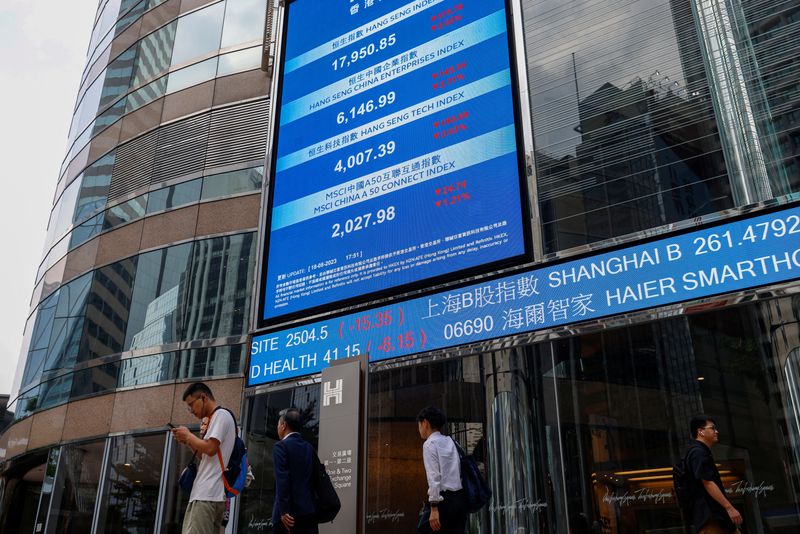By Summer Zhen
HONG KONG (Reuters) - Global hedge funds added to their holdings of Chinese equities for a fourth straight week, joining hordes of investors trying to get ahead of a rebound in the market.
The beaten-down stocks in the world's second-largest economy have been rallying since February as Beijing ramped up measures to address economic challenges and as macro data showed signs of recovery.
Hedge funds bought Chinese stocks in the past seven out of eight weeks, Goldman Sachs prime brokerage team said in a note on Friday, seen by Reuters on Tuesday. The report didn't disclose the amount of purchase.
China markets have unexpectedly outperformed world's major markets so far this year with Hong Kong's Hang Seng Index up by a third from its nadir in January. The MSCI China index is up 16% so far this year.
On Monday, Goldman Sachs raised the price targets for both MSCI China and China's blue chip CSI 300 Index.
Some hedge fund investors are betting on the rally by buying call options as a way to capitalize bigger gains from the rise in stocks, Goldman Sachs said in a separate note on Friday.
"The combination of decade-low allocations to China from both hedge- and long-only mandates and the blistering pace of the recovery has caught investors off-guard in the past months," analysts led by Kinger Lau wrote.
"The resulting performance pressures may have incentivized investors to close underweight gaps or raise exposures in Chinese stocks, likely reinforcing and fueling the upturn as the positive spiral takes hold."
In its most recent moves to restore market confidence, China last week kicked off 1 trillion yuan ($138 billion) stimulus bond issues, and unveiled a flurry of measures to support the country's struggling housing market.
Yet not all investors are convinced by the recovery narrative.
Indus Capital, a New York-based hedge fund, remains underweight on China, although it has recently added some stocks.

"The market still offers us more short opportunities than longs, particularly as we encounter more volatility due to ongoing economic challenges," said Byron Gill, managing partner at Indus Capital, citing the country's increasing deflation pressures.
($1 = 7.2392 Chinese yuan renminbi)